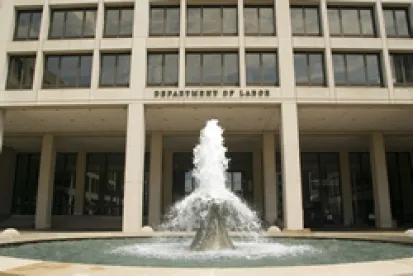The U.S. Department of Labor (DOL) has issued a Final Rule under the Fair Labor Standards Act (FLSA), addressing the conditions under which managers or supervisors may receive or share tips, including whether managers and supervisors who receive tips directly from customers may share those tips with others.
The Final Rule also addresses the circumstances under which Civil Monetary Penalties (CMPs) may be assessed against an employer who violates the FLSA’s tip regulations, eliminating the requirement that such penalties may only be imposed for “willful or repeated” violations of the new tip-sharing rules.
The Final Rule was published in the Federal Register on September 24, 2021, and will become effective on November 23, 2021.
Tip Sharing
As part of the Consolidated Appropriations Act of 2018, the FLSA was amended to permit traditionally tipped employees (e.g., servers in the restaurant industry) to pool (share) tips with non-tipped workers (e.g., bussers, cooks, and dishwashers), as long as the employer does not take a “tip credit,” that is, pays tipped workers at least the applicable standard minimum wage per hour rather than satisfying the standard minimum wage with a combination of a lower hourly cash wage and the tips received by the employees. Many commenters have argued that permitting only servers to receive tips, which in many restaurants can be very lucrative, yet prohibiting the receiving of tips by kitchen staff, who prepare the food, is unfair. On the other hand, if a tip credit is taken, the FLSA amendment expressly disallows any tip sharing between tipped and non-tipped employees.
Moreover, the FLSA amendment made clear that whether or not a tip credit is taken, managers or supervisors are prohibited from receiving other employee’s tips. However, sometimes managers and supervisors receive tips directly from customers. The regulations as first passed following the FLSA amendment clarified that managers or supervisors may retain the tips under these circumstances, but it did not address whether they would be permitted to share those tips with others. The new Final Rule revises the regulations to allow managers and supervisors to keep tips for service that they “directly and solely” provide, and further allows them to contribute a portion of those tips to other employees, either directly or as part of a tip pool. For example, a manager who assisted a server with bussing tables would not be permitted to receive a portion of the tips given to the server, but a manager who assumed a shift as a server and received tips directly from customers could share those tips with a busser. In short, supervisors and managers may give a portion of their personal tips to others, but may not receive any portion of the tips given to other employees.
Importantly, some state laws expressly prohibit tip sharing between tipped and non-tipped employees under any circumstances. Whether the 2018 FLSA amendment and the DOL’s corresponding tip regulations will be deemed to have preempted these state laws, remains to be seen. In the meantime, employers in states with their own tip regulations should proceed with caution when implementing the tip sharing rules now authorized by the FLSA.
Civil Monetary Penalties
The FLSA permits the DOL to issue a CMP of up to $1,100 for each violation of the FLSA. However, as set forth in the new Final Rule, while the Wage and Hour Division (WHD) of the DOL may assess such penalties for violations of the minimum wage and overtime requirements of the FLSA only when it determines that the employer’s actions were “repeated or willful,” this standard does not apply to violations of the tip pooling provision prohibiting employers, including managers and supervisors, from “keep[ing] employee tips.” The DOL concluded that because the “repeated or willful” language does not appear in the statute, CMPs may instead be awarded “as the Secretary determines appropriate” for violations of the employer tip-retention prohibitions.
In addition, the Final Rule broadens and clarifies the circumstances constituting willful conduct on the part of an employer for purposes of assessing a CMP when the “repeated or willful” standard does apply. To clarify some apparently contradictory language in the existing regulation, the Final Rule provides that the WHD shall consider “[a]ll of the facts and circumstances surrounding the violation” when determining willfulness. Furthermore, while an employer’s receipt of advice from WHD that its conduct is unlawful is “not automatically dispositive” of a knowing and willful violation, receipt of such advice may in fact “be sufficient” to establish the requisite knowledge and willfulness. Moreover, as set forth in the Final Rule, the WHD will deem an employer’s failure to adequately inquire into whether it violated the FLSA when it should have done as “tantamount to reckless disregard,” but it adds that this is not the only means of establishing recklessness and again it will examine all of the facts and circumstances surrounding the violation.
The Takeaway
The DOL’s Final Rule has now better identified the circumstances under which a manager or supervisor may retain customer tips and share those tips with others under the FLSA, providing some clarity to employers, although employers must also consider any applicable state law requirements.
Notably, the Final Rule did not address the “80/20” Rule regarding when employers may take a tip credit when a tipped employee performs allegedly non-tipped duties. The preamble to the Final Rule noted that this issue is still being evaluated by the DOL and will be addressed in a separate final rule later.





 />i
/>i

